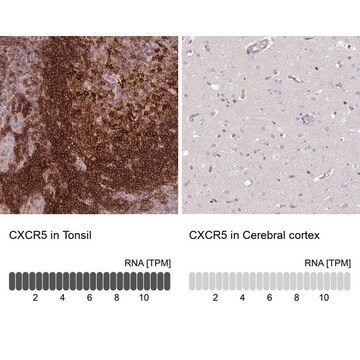MAK257
Tyrosinase Inhibitor Screening Kit (Colorimetric)
sufficient for 100 colorimetric tests
Se connecterpour consulter vos tarifs contractuels et ceux de votre entreprise/organisme
About This Item
Code UNSPSC :
12161503
Nomenclature NACRES :
NA.25
Produits recommandés
Application(s)
cosmetics
food and beverages
Méthode de détection
colorimetric
Maladie(s) pertinente(s)
dermatological diseases
Température de stockage
−20°C
Description générale
Tyrosinase or polyphenol oxidase (EC 1.14.18.1), is an oxidoreductase that participates in the biosynthesis of melanin, a ubiquitous biological pigment found in hair, eyes, skin, etc. Inhibition of tyrosinase has been a long-time target in the skin health research, cosmetics and agricultural industries because of its role in browning reactions in skin pigmentation and during fruit harvesting and handling. Skin whitening and bleaching products utilize natural or synthetic tyrosinase inhibitors in order to lighten the skin color. Polyphenols, benzaldehyde derivatives, long-chain lipids, steroids, and natural compounds have been used as tyrosinase inhibitors.
Deficiency in tyrosinase causes albino, a condition in which the melanocytes are not able to produce melanin. This increases the risk of skin cancer.
Deficiency in tyrosinase causes albino, a condition in which the melanocytes are not able to produce melanin. This increases the risk of skin cancer.
Caractéristiques et avantages
Compatible with high-throughput handling systems.
Adéquation
Suitable for screening/studying/characterizing tyrosinase inhibitors.
Principe
Tyrosinase catalyzes the oxidation of tyrosine, producing a chromophore that can be detected at 510 nm. In the presence of kojic acid, a reversible inhibitor of tyrosinase, the rate of oxidation of the substrate is decreased. The kit provides a rapid, simple, sensitive, and reliable test suitable for high-throughput screening of tyrosinase inhibitors. The assay is also adaptable to a 384 well format.
Mention d'avertissement
Danger
Mentions de danger
Conseils de prudence
Classification des risques
Eye Dam. 1 - Resp. Sens. 1
Code de la classe de stockage
10 - Combustible liquids
Point d'éclair (°F)
188.6 °F
Point d'éclair (°C)
87 °C
Certificats d'analyse (COA)
Recherchez un Certificats d'analyse (COA) en saisissant le numéro de lot du produit. Les numéros de lot figurent sur l'étiquette du produit après les mots "Lot" ou "Batch".
Déjà en possession de ce produit ?
Retrouvez la documentation relative aux produits que vous avez récemment achetés dans la Bibliothèque de documents.
Les clients ont également consulté
OP-25 Practical Applications of Systems Biology Bioinformatics in Translational Science and Drug Discovery.
Erhan S.
3rd INTERNATIONAL BAU-DRUG DESIGN CONGRESS, 94-94 (2015)
Vinay Bhardwaj et al.
Frontiers in medicine, 8, 617068-617068 (2021-03-09)
Chemical peeling is usually performed by dermatologists, plastic surgeons, and aestheticians for the treatment of photo-aged skin, dyspigmented skin, skin prone to acne eruption, and pre-cancerous skin lesions, etc. In this research paper, we report our investigative findings to understand
Notre équipe de scientifiques dispose d'une expérience dans tous les secteurs de la recherche, notamment en sciences de la vie, science des matériaux, synthèse chimique, chromatographie, analyse et dans de nombreux autres domaines..
Contacter notre Service technique








